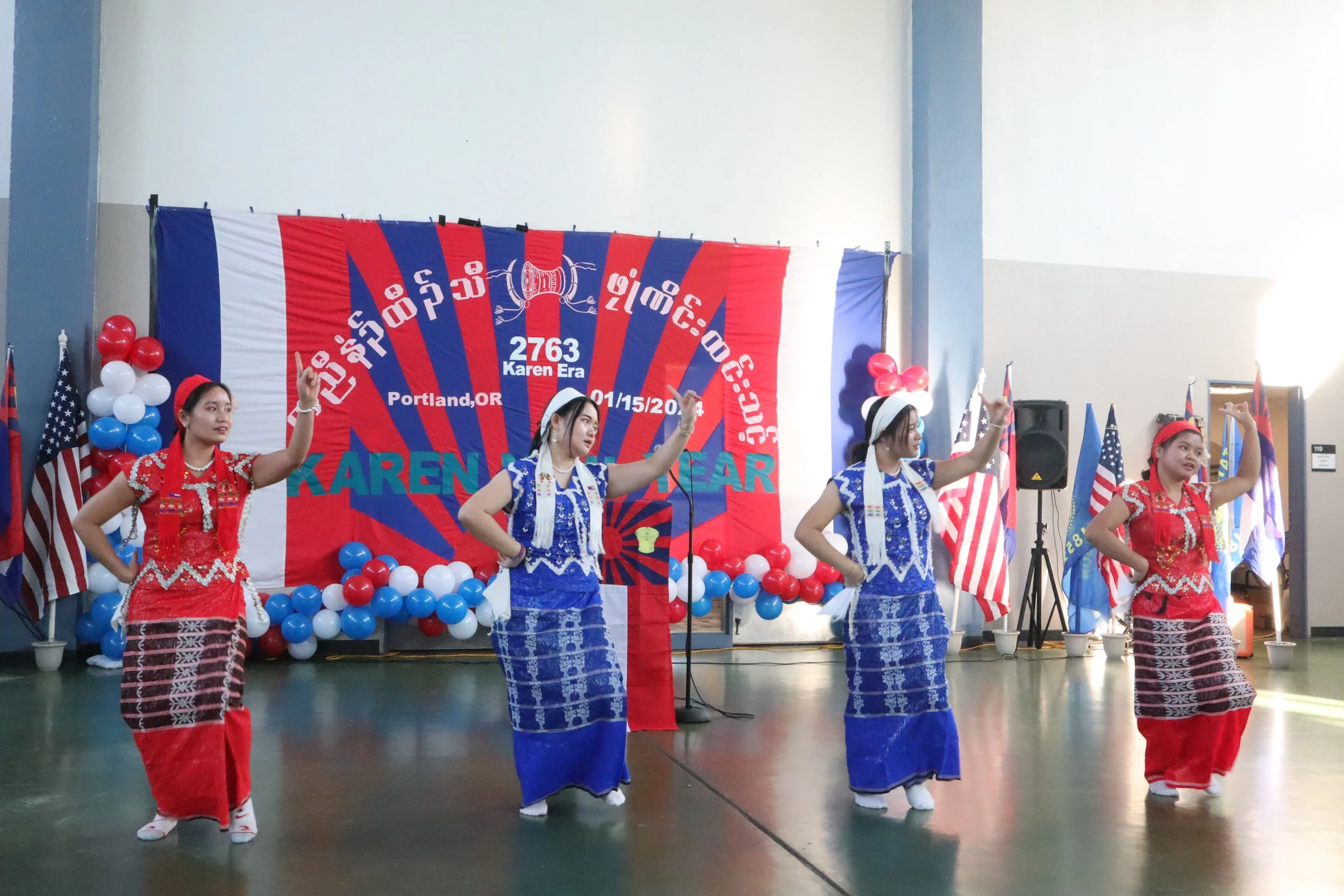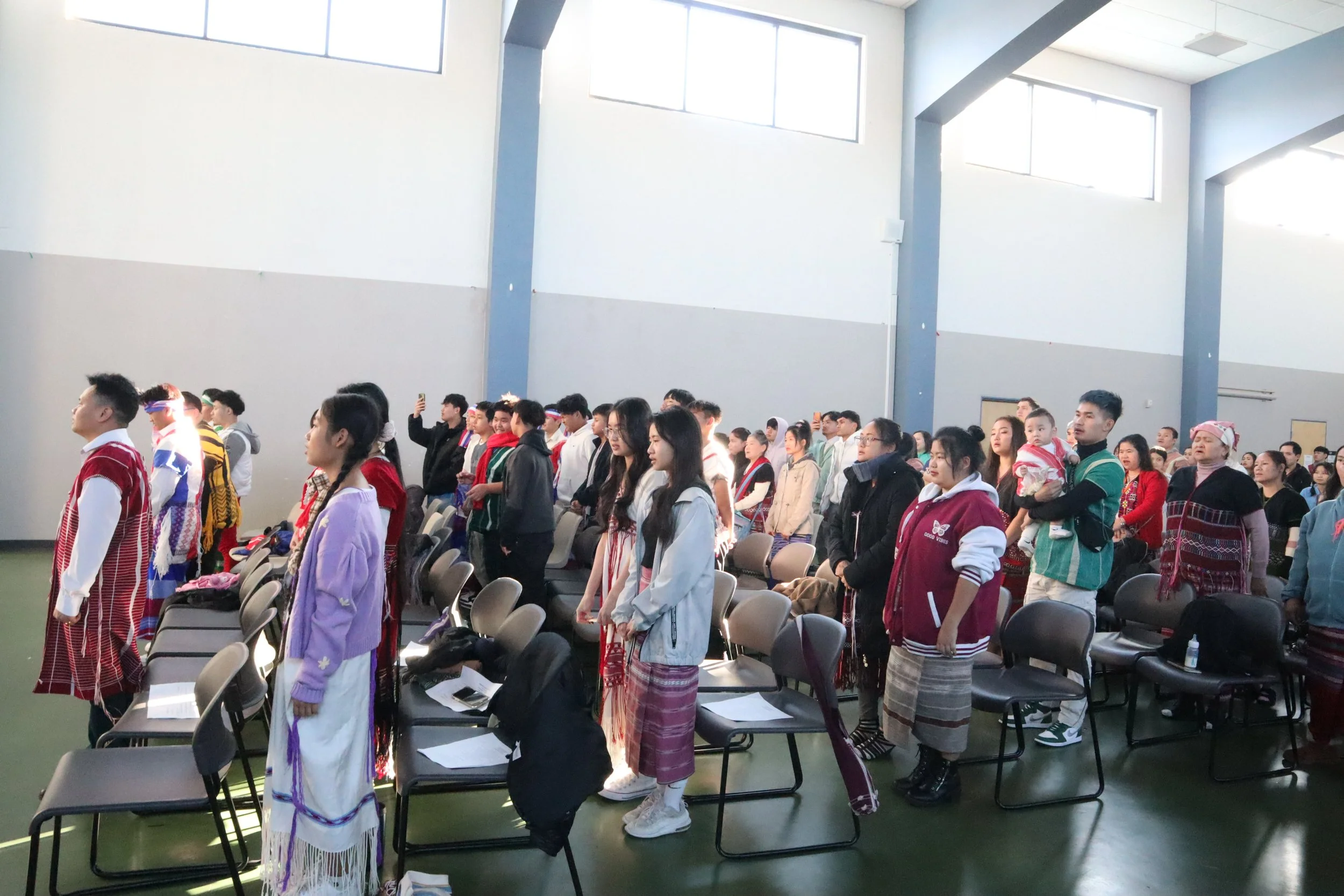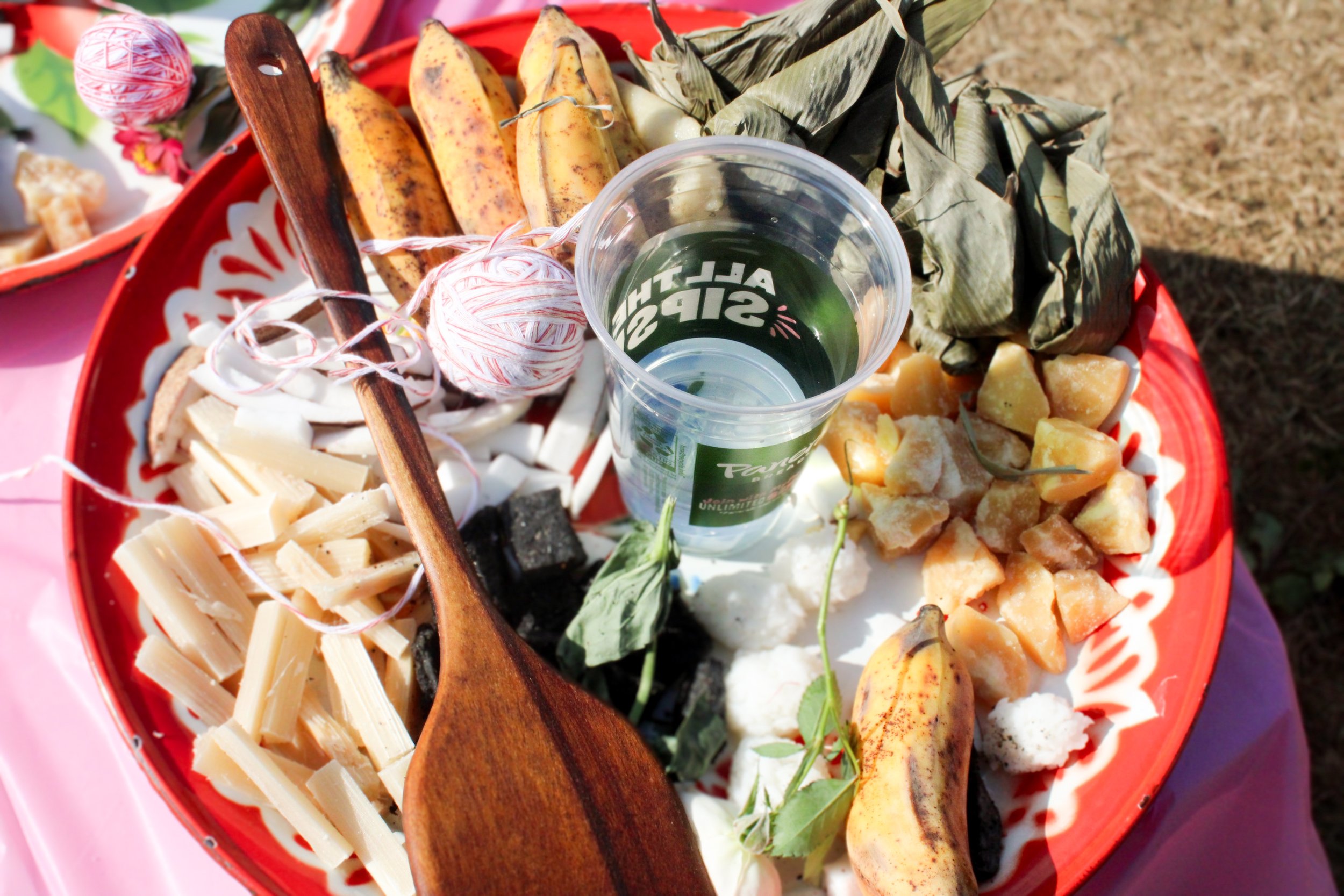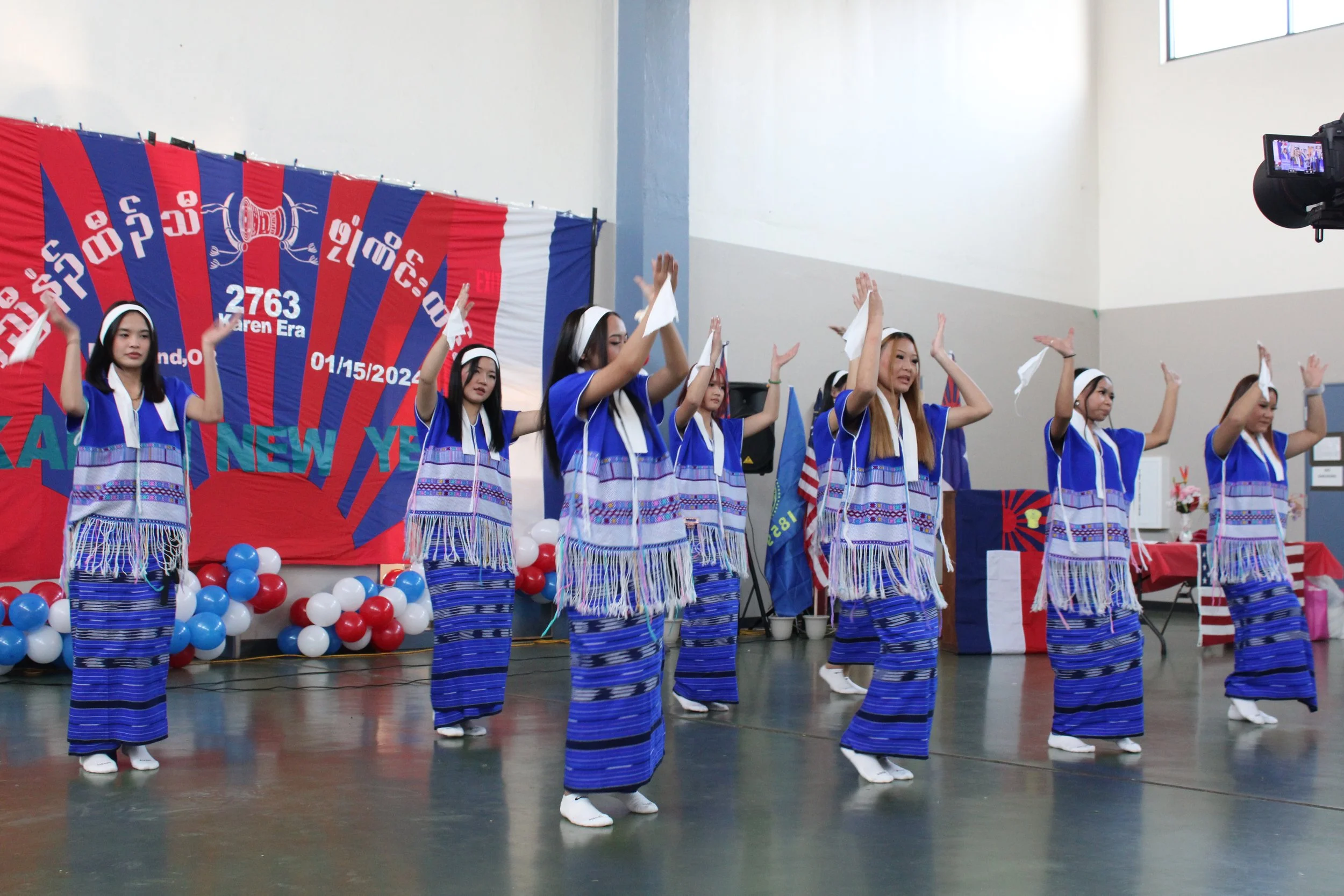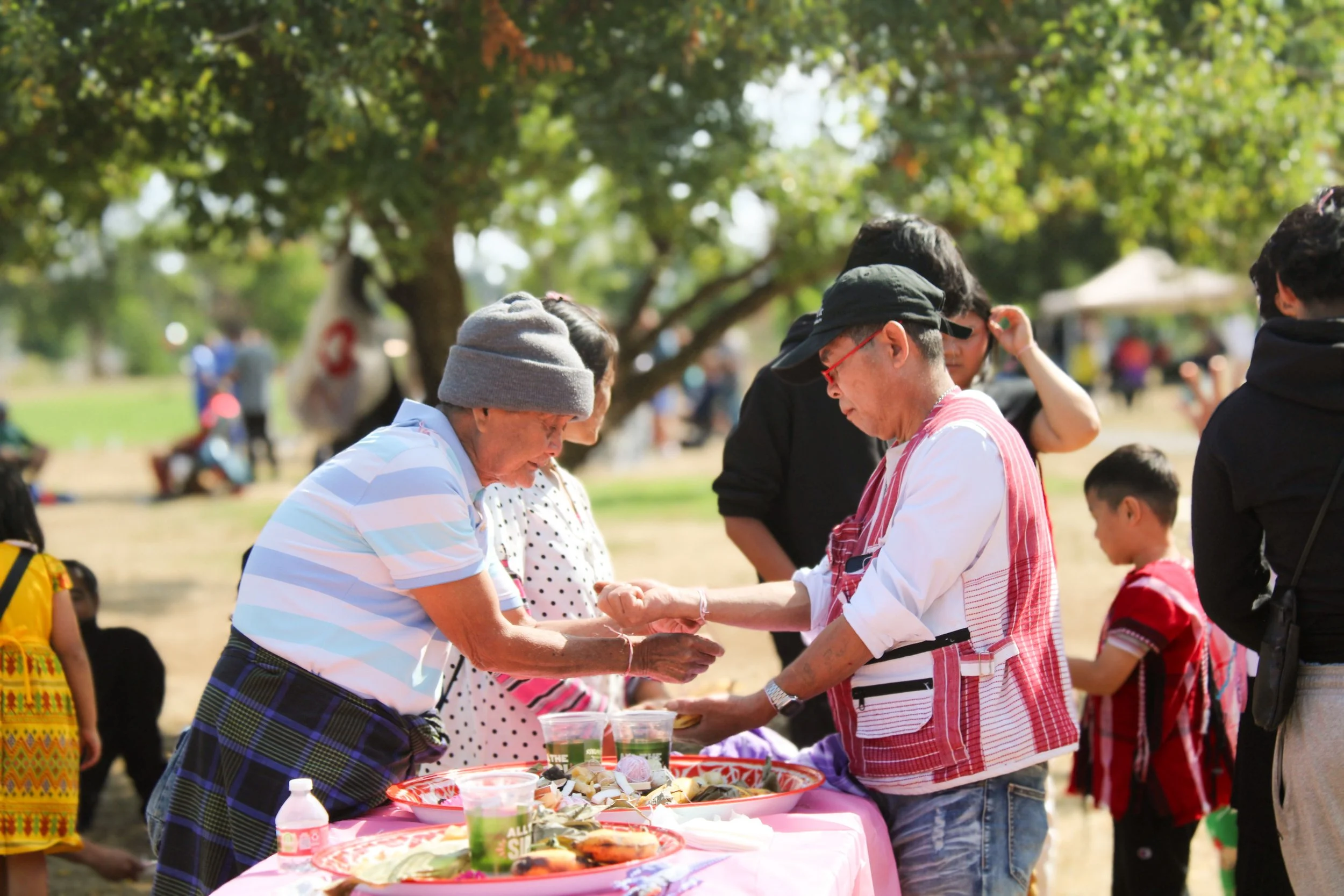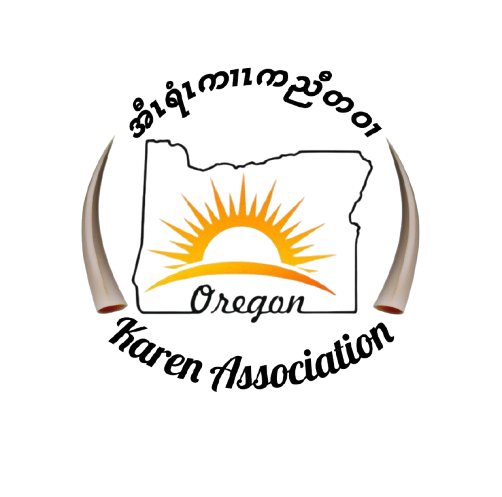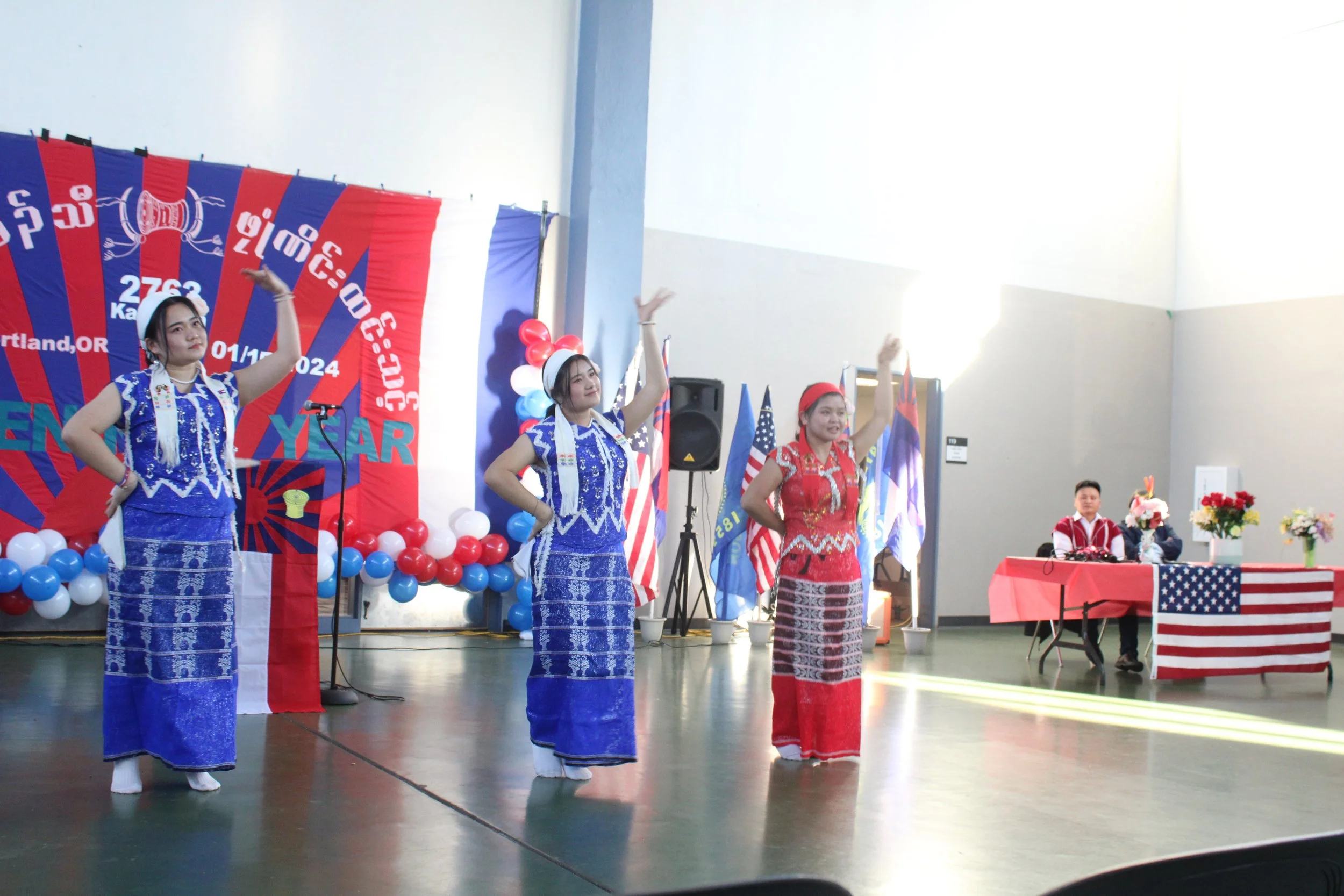
At the Oregon Karen Association, preserving and celebrating Karen culture is at the heart of our mission. As many in our community have resettled from Myanmar and Thailand, we recognize how important it is to hold on to our cultural identity. Through our traditions, language, and shared history, we strengthen community pride and pass our heritage to the next generation.
Our Current Activities
With the support of volunteers and community members, the Oregon Karen Association (OKA) partners with the local Karen community to organize and celebrate our most important cultural events each year. These gatherings are central to preserving Karen identity, honoring our history, and sharing traditions with younger generations.
We currently focus on three major annual celebrations:
Karen New Year
Karen New Year marks the beginning of a new year and is one of the most joyful and unifying events in the Karen community. It is celebrated with traditional dancing (Don and Bamboo Dance), music, speeches, and community feasting. Dressed in colorful traditional clothing, participants come together to reflect on the past year, share hopes for the future, and celebrate Karen identity and resilience. It’s also an opportunity to educate younger generations about our customs and cultural values.
Karen Martyrs Day
Karen Martyrs Day honors the memory of Karen leaders and freedom fighters who gave their lives for the survival, dignity, and rights of the Karen people. It is a solemn and meaningful day for remembrance and unity. The program often includes flag ceremonies, speeches, cultural performances, and moments of silence. It teaches our youth the importance of our history, struggle, and pride—and reminds us to never forget those who came before us.
Karen Wrist Tying Ceremony
The Wrist Tying Ceremony is a spiritual and cultural event deeply rooted in Karen tradition. Elders tie white cotton strings around the wrists of younger community members to bless them with health, safety, and protection for the year ahead. This ceremony also symbolizes family connection, healing, and unity. It is accompanied by traditional foods, prayers, and cultural performances. For many, it is an emotional and beautiful time to reconnect with Karen values and honor our ancestors.
